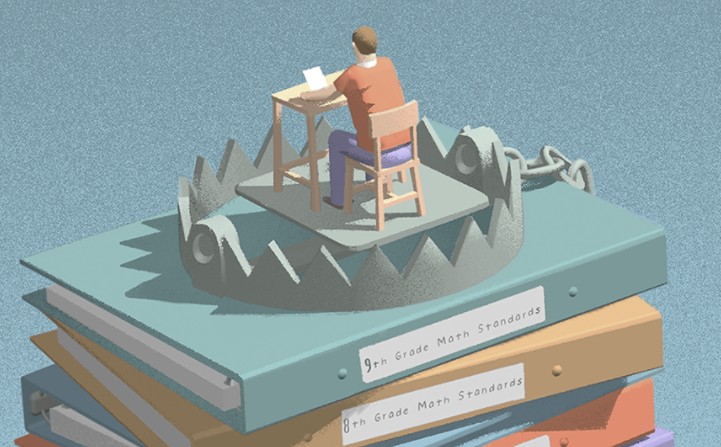The Grade-Level Expectations Trap
May 12, 2020
By: Joel Rose
Imagine a 6th-grade math teacher with high hopes for her students. Let’s call her Ms. Rodriguez. She wants her students to find joy in the beauty and complexity of math, make connections to the world around them, and master the skills and content they’ll need to succeed in middle and high school, college, and beyond. She believes that each one is capable of rigorous study and is committed to doing all she can to prepare them.
But in a typical class of 25 students, she’s finding that as few as five can keep up with 6th-grade work. One day, after her students struggled with adding and subtracting decimals, she sensed that most of them hadn’t quite mastered decimal place value in the 5th grade. So she found a suitable lesson online and retaught place value—after all, you can’t hope to add decimals accurately if you can’t keep your tenths and hundredths straight. Her students caught on quickly and were relieved by the refresher.
By chance, the principal dropped in for an observation that day, and the feedback wasn’t good. Stick to the 6th-grade curriculum, he said. That’s what will be covered on the end-of-course exam, so that’s what students need to be taught. There won’t be time enough to cover much else.
Ms. Rodriguez believes in keeping expectations high. But she doesn’t see how students will ever meet 6th-grade standards if she can’t help them address unfinished learning from elementary school that is foundational to middle-school math. Gaps in learning lurk beneath the surface, and math instruction builds on itself each year. By only looking at the current year’s curriculum, how will her students ever master all they need to know?
This is what the organization I lead has identified as the “Iceberg Problem,” and it’s what inspired us to create a personalized-learning model for middle-grade math eight years ago. That program, Teach to One, provides students with individualized instructional programs each day that integrate teacher-led instruction, collaborative learning with peers, and virtual online study. Our goal is the same as Ms. Rodriguez’s: for students to access the right lesson, in the right way, based on where they are starting and where they need to go.